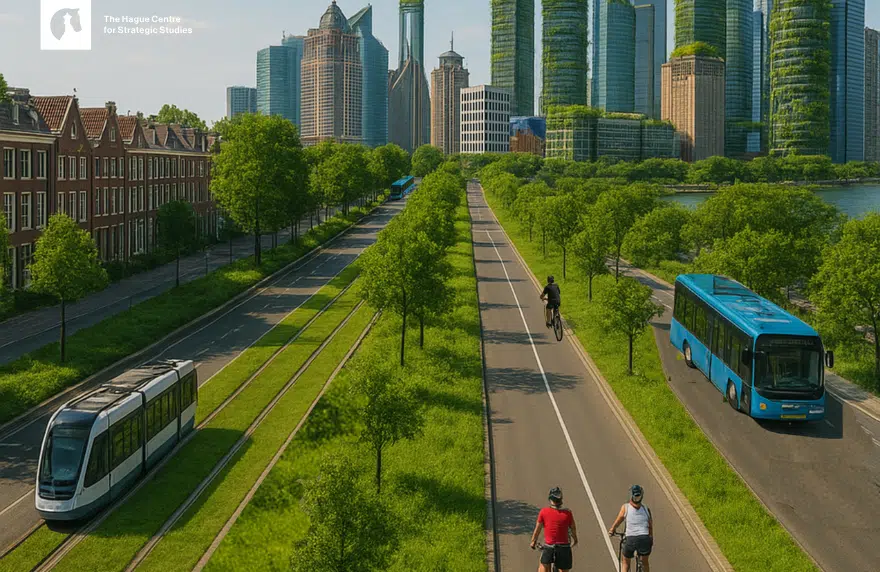Research
The Netherlands and China face similar environmental challenges, including pollution, extreme weather events, and ecological degradation – yet they approach them through distinct policy systems. The latest HCSS report explores how both nations conceive and operationalise sustainability policies, and identifies opportunities for deeper cooperation. Using the policy cycle as an analytical framework, the report examines how sustainability objectives are formulated, implemented, and evaluated across three shared domains: physical connectivity, environmental quality and human wellbeing, and resilience and adaptability.
The report, authored by Fiona De Cuyper, Ardi Bouwers, and Laura Birkman, finds that the Dutch system, guided by the Policy Compass (Beleidskompas), emphasises stakeholder engagement, transparency, and evaluation, while China’s dynamic ‘Double Wheel’ model balances strong central direction with local experimentation and feedback. Both countries share long-term climate goals aligned with the Paris Agreement, and both view innovation as the engine for sustainable transformation.
Comparative case studies – from Utrecht’s smart solar charging districts to China’s sponge cities – demonstrate how pilot projects can drive learning and policy exchange. The report highlights several complementarities: Dutch experience in design standards, evaluation frameworks, and circular economy approaches can enrich China’s large-scale deployment capacity, while China’s rapid scaling and mobilisation can help Dutch innovations mature beyond the pilot stage by stress-testing them in high-growth, high-risk conditions.
Three important lessons are put forward by the report:
1) It is crucial to identify the right actors at the right levels (incl. ministries, research institutes, pilot regions, and local governments);
2) Instruments need to be tailored, whereby a combination of Chinese industrial and fiscal mobilisation and Dutch regulatory and evaluative strengths can generate powerful hybrid solutions; and
3) Pilot projects are the engine of cooperation by allowing for mutual learning while connecting high-level goals with concrete implementation.
The study concludes by formulating a number of strategic directions and concrete recommendations to reinforce future cooperation, including the integrated spatial planning, focusing on the upper stages of the waste hierarchy, and leveraging long-term institutional ties, among others. Overall, through the logic of the policy cycle, the report offers a roadmap for aligning practical Sino-Dutch cooperation in the global green transition.
With contributions by Alexander Krabbendam and Noemie Jacq.
Funding for this study was provided by the Netherlands Ministry of Infrastructure and Water Management. The views expressed are solely those of the authors.








